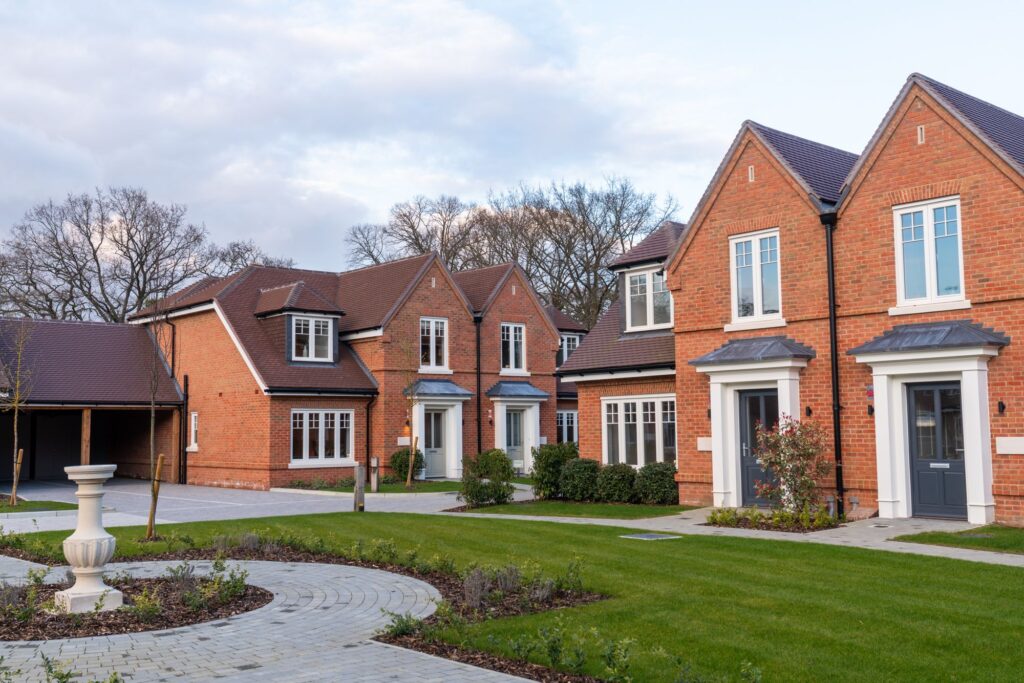The house building sector reaches 20-year record high

A new Government report has revealed that the home building statistics demonstrates a continued increase in works beginning and finalising, despite the pandemic’s impact of social distancing, reduced supply of materials and tradespeople.
The report shows that the number of completed homes has hit 50,000 in the first three months of 2021, which is the highest figure seen in over 20 years. As the government aims to rebuild the economy and support the industry through its ‘build back better’ mantra, the number of homes being built will continue to rise.
New national research by Powered Now – a field service management software for the trades – has shown that it wasn’t just the construction of homes that has catapulted, but also the home improvement market has sky-rocketed, witnessing a 29.7% increase in consumer expenditure. The total spent by British consumers on home improvements has amounted to £110.3bn, while Brits have spent an average of £2,011 per person on home refurbishments and the UK property market has witnessed a 10.9% rise in average property value. Although, it is yet to be established if this is due to the extensive home renovations, or an overcrowded housing market.
Powered Now’s unique study has also dissected the exact home improvement projects that Brits have undertaken in the past year, ranging from traditional kitchen replacements, to building home-gyms in a time of commercial closure. The research found that 1.5 million Brits had hired a tradesperson to build an outhouse, while a further 818,000 commissioned tradespeople to build an extension to their homes.
According to independent research by Checkatrade, the most common purposes for home renovations over the lockdown period were for Shed Offices, Home Cinemas and Snugs. Due to periods of prolonged isolation, home comforts were clearly the key for many Brits to battling the difficulties of isolation. This was further highlighted through Powered Now’s research that uncovered that home aesthetics had a great importance to Brits, with over 5 million of us employing painters and decorators in the past year.
Key Stats:
Brits spent £110.3bn on home improvements over the course of the pandemic
23% of Brits (5,055,000) employed painters and decorators
19% of Brits (4,177,000) employed a tradesperson for wiring and electrics job
15% of Brits (3,229,000) employed a tradesperson for a bathroom improvement/renovation
14% of Brits (3,115,000) had a landscaping project during lockdown
14% of Brits (2,936,000) had undertaken a roofing job
13% of Brits (2,765,000) had employed a tradesperson for a kitchen replacement/renovation
7% of Brits (1,513,000)had hired a tradesperson to build an outhouse/shed
4% of Brits (818,000) had a tradesperson/builder for an extension
3% of the UK (696,000) had a home gym installed by a tradesperson
37% of Brits experienced tradespeople that they wanted to use being too busy to do the work that they wanted during the pandemic (11,140,000)
34% of Brits agreed that hiring a tradesperson was the only service that they used during the lockdowns (11,362,000)
Ben Dyer, CEO of Powered Now, discusses how the last year of turbocharged spending has affected the trades.
“The news that consumer spending is through the roof directly correlates from what we have seen on the ground. We have witnessed tradespeople experiencing their highest client demand ever during the course of 2020, and these figures are very much in line with what we actually would have expected. If you look to the hardware retailers that were allowed to remain open when other non-essential retail wasn’t, they have performed so incredibly, further indicating the desire people have had for home improvements.
Whether people looking to renovate after their home moves, or potential sellers giving a new lick of paint to try and squeeze any additional value to their house, tradespeople have been inundated as a result. Despite the initial lockdown bringing the industry to a standstill, the economic bounce-back has been quite remarkable.”




